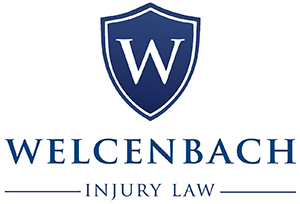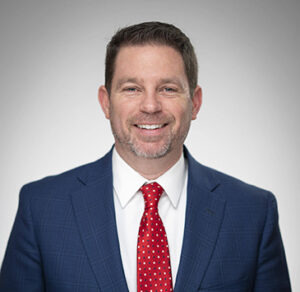The Insurance Company Wants a Statement: What Should I Say?
After filing a personal injury claim, the at-fault party’s insurer may request a statement from you. This is done to try to extinguish or devalue your claim. We advise that you never give a statement to the other insurance company because they will use your own words against you during negotiations or a trial to offer you a reduced settlement. It’s critical to your settlement to hire an experienced personal injury lawyer. We’ll help guide you through the process—to ensure you don’t jeopardize your chances of getting the settlement you deserve. Here are a few tips to keep in mind when giving a statement to the at-fault party’s insurance company.
When to Give a Recorded Statement
If you’re involved in a car crash, you’ll always deal with at least two insurance companies during the personal injury claims process.
At-fault Driver’s Insurer
The insurance company representing the person responsible for your car accident or other personal injury is responsible for handling payouts. An insurance adjuster from the at-fault party’s insurer will follow up on the incident by conducting interviews and examining evidence from the accident scene. They may also tell you that you must sign medical releases to the at-fault party’s insurance company. That simply is not true. Don’t sign anything without talking to a personal injury attorney.
It’s important to note that the adjuster’s job is to protect the insurance company. The adjuster will therefore review the claim with that bias. Always avoid giving a recorded statement when dealing with the at-fault party’s insurance company. Remember—they aren’t your friends and will use your recorded conversation and facts against you to reduce the settlement as much as possible or eliminate your claim. Negotiations with insurance companies are alternative resolution methods. That means you have the legal right to say no to an adjuster’s settlement proposal unless the court rules otherwise. If you choose to take your personal injury case to trial, having a car accident lawyer by your side would be beneficial.
Medical Insurance Company
The other insurance company involved with your claim is the one that underwrites your personal injury coverage. Usually, the medical insurance company will require proof of medical costs. Therefore, it’s critical to store original copies of all the medical expenses you incurred due to the accident. Although it’s not typical for the medical insurance company to ask for a recorded statement, make sure you have all your medical bills and all related expenses—prescriptions, transportation costs to and from doctor’s appointments, etc.
Ask Questions to the Opposing Insurance Carrier
If someone from the at-fault insurance company asks you for a statement, flip the line of questioning on them. Instead of giving a statement, ask them questions that will help with your insurance claim and give you a sense of the insurer’s general attitude and professionalism during the claims process.
Some examples of questions to ask the defendant’s insurer include:
- Do you admit I wasn’t at fault but suffered injuries from the accident?
- How much insurance coverage does the at-fault driver have?
- May I see a copy of the responsible driver’s recorded statement?
- Can I get the recorded statements by eyewitnesses?
- Can I get your insured’s entire lifetime of medical records to see if they were able to drive properly?
- Can I get your insured’s cell phone records to make sure they weren’t texting or distracted while driving?
What Not to Say to an Insurance Company
Most personal injury claimants make a costly assumption that telling the truth can’t hurt their settlement amount. Telling the truth is okay, but it should be said to the right people. Even if you’re telling the truth, the at-fault party’s insurer will attempt to twist your report and use it against you in court. Here is what you must avoid when issuing a statement with an insurance carrier.
“I’m at Fault for The Accident”
Never admit fault for an accident when recording a statement with an insurance company. Giving a report based on your personal opinions or emotions is not advisable. While that’s okay and advisable with your attorney, the insurance carrier will use your acceptance of fault to reduce your compensatory amount. Additionally, remember you don’t know the personal injury statutes pertaining to every aspect of the incident. You might think you’re at fault when that’s not actually the case, so keep your personal information and opinions confidential.
“I’m Not Injured”
Physical injuries are often apparent following an accident. But sometimes, they don’t show up for weeks or even months. Never state that you’re not injured just because you don’t have any broken bones or bruises. You don’t know if you have injuries without a follow-up medical visit from a medical expert. Saying you’re uninjured empowers the at-fault party’s insurance company to use your words against you.
“I Think…” Or “I Guess….”
You might have personal opinions about the circumstances of your accident, but you need to put them aside when answering questions from the responsible driver’s insurer. Often, the insurance company will ask questions about your driving speed or the distance between you and the other driver. Don’t offer estimates to these questions. “I don’t know” is a simple, straightforward answer that doesn’t hurt your settlement outcome.
Other Involved Parties
Never disclose the identities of other people involved in the accident because your job is to focus on your claim. It’s not your responsibility to comment about other motorists’ involvement in the accident. The truth is that you don’t have all the facts, and you may give incorrect answers. If the insurance agent is hard-pressing you to issue the names of other people involved in the accident, advise them to speak to your personal injury attorney.
“I Don’t Have a Lawyer”
Even if you haven’t yet sought the services of a car accident lawyer, never reveal that to the defendant’s insurance provider. Insurance agents or claims adjusters know that most claimants don’t understand how the claims process works. Admitting you don’t have an attorney makes you vulnerable, as they can try to take advantage of your ignorance to reduce the payout amount.
Don’t Accept a Settlement
When talking to an insurance company, they might offer you a lump sum to close the case quickly and pay the lowest compensation possible. With that in mind, you shouldn’t accept any value the insurance company proposes, even if it seems like a lot of money. The personal injury settlement should cover your injuries, property damages, lost income, and future treatments. Although you might be starved of cash from all the financial losses you’ve incurred due to the accident, it’s best to be patient and let your attorney fight for you to get maximum compensation.
Why Partner with an Attorney?
Many accident victims assume they can handle their claims without involving a lawyer, especially if they feel they aren’t injured or when dealing with their insurance provider. Remember, an insurance adjuster represents the insurer’s interests and will try to adjust the claim to suit their financial interests. They typically apply a standard formula for calculating the settlement amount without considering the specific circumstances of the incident. You need to partner with a personal injury attorney from Welcenbach Injury Law. We’ll investigate the case to look for circumstances that offer opportunities to maximize your compensation. We can advise you of your legal rights, what to say, and perhaps more importantly, what not to say when giving a statement to the insurance company. If you’ve been involved in a car accident or any other accident that warrants compensation, contact Welcenbach Injury Law. We will handle your case empathetically and advocate on your behalf during the claims negotiation process to ensure you get your rightful compensation.

 Robert Welcenbach is an Owner and Partner at Welcenbach Injury Law, a family-owned personal injury law firm in Milwaukee, WI. With more than 24 years of experience practicing law, he seeks justice for clients in a wide range of legal areas, including car accidents, class actions, dog bites, nursing home abuse, and other personal injury matters.
Robert Welcenbach is an Owner and Partner at Welcenbach Injury Law, a family-owned personal injury law firm in Milwaukee, WI. With more than 24 years of experience practicing law, he seeks justice for clients in a wide range of legal areas, including car accidents, class actions, dog bites, nursing home abuse, and other personal injury matters.